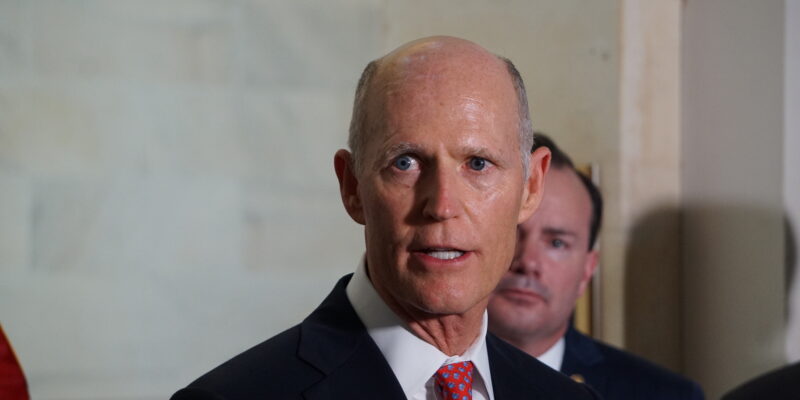Sen. Rick Scott (R-FL) introduced legislation on Tuesday attempting to stop President Joe Biden (D) and his administration from canceling student loan debt all at once across the country. The Debt Cancellation Accountability Act makes it a requirement for the U.S. Department of Education to “express appropriation from Congress to pay for any federal student loan debts the Department proposes to waive, discharge, or otherwise reduce whenever granted to two or more borrowers in an amount greater than $1,000,000, rather than on a case-by-case basis.”
The bill is joined by Sen. Cynthia Lummis (R-WY), Sen. Mike Braun (R-IN), and Sen. John Barrasso (R-WY).
“The Biden administration's latest move to cancel millions of dollars in student loans is yet another example of how far it will go to appease the radical left. The reality is, a blanket forgiveness of student loans only benefits a small percentage of the population at the expense of millions of other hardworking Americans. Those who have saved to pay for the education they chose to get, or have no debt at all because they chose a valuable career that doesn't require a college degree, shouldn't be on the hook to bail out folks that voluntarily took on debt and now want someone else to pay for it. That's not how the real world works," stated Sen. Scott. "Our legislation, the Debt Cancellation Accountability Act, will hold this administration accountable to American taxpayers by requiring Congressional approval for any mass cancellation of student debt. When I was governor of Florida, we focused on solving the real problem behind massive student loan debt: the rising cost of higher education. Biden should do the same.”
As of late, Scott has been building a national presence by going after President Biden relentlessly, including calling for him to resign in a national tv ad, paid for by his campaign.
Perhaps a presidential run is in the cards for Scott. Scott is rumored to be considering a presidential run in 2024, if former President Donald Trump decides not to run for a second term.






